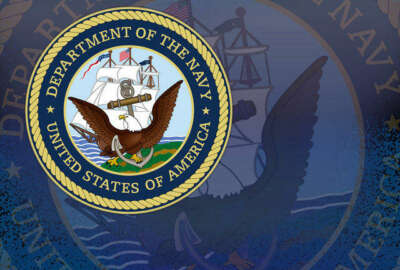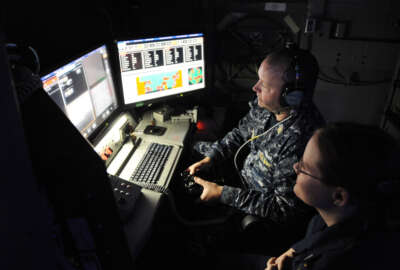
Navy education overhaul creates new CLO, community college
The Navy education overhaul will align educational and research efforts at the Naval War College, Naval Academy, Marine Corps University and other schools withi...
The consolidation of the Navy education system is starting to take shape with a new memo from Navy Secretary Richard Spencer. A new Naval University System will align educational and research efforts at the Naval War College, Naval Academy, Marine Corps University and other schools within the Navy. It will also create a Naval Community College for enlisted sailors and Marines.
These initiatives are based on a new report on the Navy education system commissioned last spring by Thomas Modly, undersecretary of the Navy.
“Any success we may enjoy in the future will be enabled by an evermore agile force — led by agile people who thirst for knowledge and who are adept at thinking, learning and processing information quickly,” Modly said in a press release. “The development of such a force does not happen by accident. It must be constantly cultivated through a renewed emphasis on education, and the deliberate construction of a learning culture across the entire naval service.”
The report found that the current decentralized organization of the system left these institutions under-utilized and underfunded. It also found that training in new technology is inconsistent at best.
Bringing each of these institutions under a centralized authority and curriculum is intended to mitigate these issues, as well as link the Navy education system with the broader academic world and the private sector. Spencer’s memo calls for a unified education strategy, including “integrated naval wargaming, competitive team learning and continual learning for every sailor and marine, at every pay grade,” to be completed by Dec. 31.
Related Stories

Paul Tortora & Zac Dannelly: How cybersecurity education is changing the Navy
All of these efforts will be overseen by a three-star “director of warfighting development.” The report suggested this role should be filled by the president of the Naval College in Newport, Rhode Island, but Spencer’s memo hedged on this recommendation, saying the Navy will examine its leadership options in detail while formulating its Naval Educational Enterprise strategic plan.
A civilian chief learning officer will also assist the director. The CLO position is new, and the office will be fully staffed by June 1, according to the memo. Modly will be leading the effort to fill the position and staff the office.
“We will raise individual and organizational learning to the level of a warfare enabler, with authority at the three-star level for the Navy and the Marine Corps, respectively, and advised by a Department of the Navy (DON) civilian staff assistant solely devoted to education,” Spencer said. “They will be accountable directly to me for the execution of their broad responsibilities for all of naval learning in order to ensure ever-increasing unity, warfighting capacity and institutional progress in support of the 2018 National Defense Strategy.”
In addition to helping formulate the Navy’s education strategy and curricula, the CLO will be the Navy’s liaison with civilian learning institutions and the private sector, responsible for finding and sharing best practices in education.
One way the Navy intends to link itself to these institutions is through the implementation of a universal transcript system. This will allow enlisted sailors and marines attending the new Naval Community College to earn accredited associate’s degrees and certifications, especially in technology-oriented fields. These will include artificial intelligence, data analytics and information systems.
Learning achievements will also be included as a new, separate category in officer fitness reports and enlisted evaluations starting Jan. 1, 2020.
Copyright © 2024 Federal News Network. All rights reserved. This website is not intended for users located within the European Economic Area.
Daisy Thornton is Federal News Network’s digital managing editor. In addition to her editing responsibilities, she covers federal management, workforce and technology issues. She is also the commentary editor; email her your letters to the editor and pitches for contributed bylines.
Follow @dthorntonWFED




